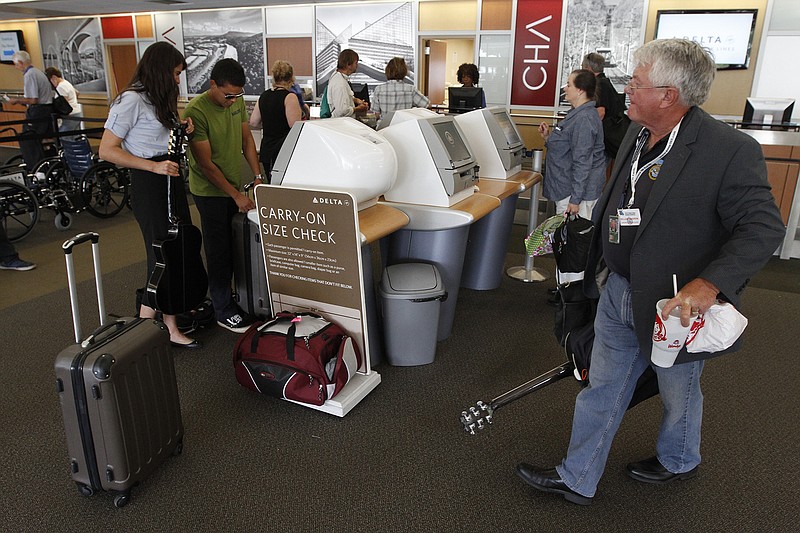NASHVILLE -- A state fund that helps pay for improvements at dozens of Tennessee airports, including Chattanooga's, will see its revenues whacked by two thirds under a Haslam administration-backed tax break for Memphis-based FedEx.
A last-minute amendment on a bill would cap any company's aviation-fuel tax liability at $10.5 million annually. It would only impact FedEx and has been pushed by the company behind the scenes.
The 4.5 cent-per-gallon aviation-fuel surcharge flows into the state's Transportation Equity Fund, which provides an estimated $32 million in grants annually to airports.
Because of its huge fuel purchases in Memphis, FedEx Corp. annually pays on average between 66 to 75 percent of the total revenues going into the state's $41 million to $48 million fund, The Commercial Appeal of Memphis reported Thursday.
Chattanooga Metropolitan Airport officials refused to comment Wednesday and Thursday on a move that could cost the facility hundreds of thousands of dollars in grants annually.
For example, in 2012 alone, the fund provided $878,000 to the Chattanooga airport to renovate the facility's commercial terminal. That same year, the Cleveland, Tenn., airport received a $958,550 grant for a new apron -- the area where planes are parked and boarded -- and a new taxi lane.
While local airport officials are mum, the association that represents them as well as the state's four other largest airports isn't. They lobbied frantically this week to keep their funding from going into a tailspin.
Another association representing dozens of smaller airports scrambled, too.
Patrick Wilson, executive director of the Tri-Cities Airport Authority and president of the Tennessee Association of Air Carrier Airports, told the Senate Transportation Committee this week that he was speaking on behalf of the large airports, excluding Memphis International where FedEx is located.
"This bill is presented as economic development for one section of the state, but it has the potential to significantly harm economic development across the state if it hurts the ability to grow and maintain the airports we have," he warned.
But officials with the departments of transportation, economic and community development and revenue argued for the bill.
They hinted broadly that FedEx could easily shift flights from Memphis to airports in Indianapolis and Greensboro, N.C., to avoid Tennessee taxes. Indiana has no such tax, the Commercial Appeal reported, while North Carolina's capped at $2.5 million per company.
Rep. Mark White, R-Memphis, the bill's sponsor, cited estimates that a FedEx shift to other states could cause the loss of 12,000 of 36,000 jobs, mainly in West Tennessee, and $1.4 billion in direct and indirect revenue and reduced wages and earnings across Tennessee.
"So my contention is, do we want to look someday at a $1.4 billion loss or put a cap on this?" White said.
The bill phases in the per-company cap at $21.375 million on July 1 and decreases it over four years to $10.5 million.
House Majority Leader Gerald McCormick, R-Chattanooga, defended the cap Thursday, telling reporters "in this case FedEx is so important, not only to Memphis but to the whole state, and they are such a mobile business that they could literally move their fueling operations within days to another state."
Moreover, McCormick added, "they were pretty reasonable. They could have asked to just wipe the tax out. ... We really had a choice of letting them fuel their airplanes in Tennessee or letting them do it in Tennessee and collect a reduced amount."
Asked whether FedEx had threatened, suggested or even hinted to the state it would do that, McCormick said he had no knowledge of such action.
As for what airports in Chattanooga and elsewhere are expected to do with a big cut in state grants, McCormick noted the phase-in provides some time.
"I think it's something that does need to be looked at and maybe we can look at some other sources of funding," McCormick said. "But if FedEx had moved its operations ... they'd have lost more and FedEx is very capable of moving this operation and fueling somewhere else."
Contact staff writer Andy Sher at asher@timesfreepress.com or 615-255-0550.
